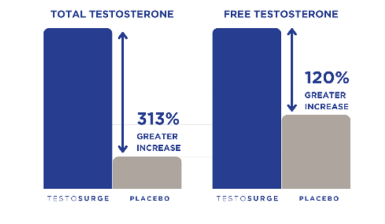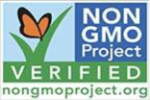OVERVIEW
VARIANTS
OVERVIEW
VARIANTS
HEALTH BENEFITS
Benefits of BreathMor compared to Antihistamine
USP
USP
SCIENCE
Scenario
Scenario
- According to research, around 30% of overweight men have Testosterone Deficiency.
- 38% of men above 40 have testosterone levels below 300 ng/dl.
- Above the 80-year threshold, more than 50% of men have testosterone levels below 300 ng/dl.
- As far as diabetes patients go, up to 24% of men have low testosterone levels.
- Low T-levels are harmful for all aspects, including physical, mental, and social
Reference:
Foundation
Foundation

A broad spectrum of systematic reviews and scientific data demonstrated that fenugreek and its extracts improve glycemic and lipid profiles. Fenugreek is known to have antioxidant, anti-carcinogenic, gastro protective, anti-inflammatory, antimicrobial, immunological, anti-obesity, and hepatoprotective effects, and are beneficial to women’s health. Further, previous studies reported that fenugreek improved cognitive functions and Parkinson’s symptoms and showed anti anxiety, antidepressant, and neuroprotective properties. A recent study has reported the beneficial effects of fenugreek and its extract on hormonal-related statuses, such as galactagogue in lactating women and male impotence.
The presence of fenugreek seeds in various traditional medicinal systems is due to their composition of diverse phytochemicals, including Glycosides.
Potential benefits of fenugreek glycosides in testosterone production include: Increased Testosterone Levels:
- Fenugreek supplementation may lead to an increase in testosterone levels, which could have positive effects on muscle mass, strength, and overall vitality.
- Enhanced Libido: Fenugreek has been traditionally used as an aphrodisiac, and its potential influence on testosterone levels may contribute to improvements in libido and sexual health.
- Improved Exercise Performance: Higher testosterone levels may be associated with increased exercise performance and muscle strength, making fenugreek an area of interest for athletes and those involved in physical fitness.
- Spermatogenesis Support: Testosterone plays a crucial role in spermatogenesis (sperm production), and fenugreek’s potential impact on testosterone levels may have implications for male reproductive health.
Mechanism of action
Mechanism of Action
Testosurge® is standardized to include a specific combination of steroidal and flavonoid glycosides. The steroidal glycosides in Testosurge® enhance the effectiveness of testosterone by competitively binding with SHBG. When testosterone is released into the bloodstream approximately 60-70% of it binds to SHBG. The steroidal glycosides from Testosurge® binds to SHBG and make testosterone free and bioavailable.
On the other hand, the flavonoid glycosides in Testosurge® play a role in increasing testosterone production. They achieve this by enhancing the expression of the steroidogenic acute regulatory (StAR) protein in Leydig cells. Testosterone is produced within the mitochondria of Leydig cells through steroidogenesis, where the StAR protein facilitates the entry of cholesterol into the mitochondrion.
Testosurge® has demonstrated inhibitory activity against5-alpha reductase and aromatase in cell line studies. 5-alpha reductase is an enzyme responsible for converting testosterone into DHT, while aromatase converts testosterone into Estrogen. This inhibition activity suggests that Testosurge® may help regulate the levels of these hormones in the body.
Additionally, Testosurge® can inhibit PDE5 enzyme which canresult in improved vasodilation and penile blood flow.
Efficacy
Efficacy
Human Clinical Study 1: Effects of Testosurge® supplementation on strength, body composition and hormonal profiles during an 8-week resistance training program.
Human Clinical Study 2: Effects of Single dose Testosurge® on serum testosterone levels of healthy sedentary male subjects
Scenario
Scenario
- Allergic rhinitis (AR) represents a global health concern where it affects approximately 400 million people worldwide.
- Allergic rhinitis prevalence has increased significantly since the 1990s. It is reported to affect approximately 40% of adult globally. Approximately 80% of AR symptoms develop before the age of 20 years and peak at age 20–40 years before gradually declining.
- Prevalence of AR has increased with years due to several risk factors including global urbanization as shown by several studies comparing AR prevalence in urban settings with rural areas. This is mainly caused by increased levels of pollutants [e.g., traffic-related pollutants and particulate matter 2.5 (PM2.5)] that can exacerbate pollen-sensitized AR.
- The costs for treating rhinitis in the US have doubled in 5 years to 11 billion US$.
Reference:
FOUNDATION
FOUNDATION
Cinnamon is one of the most important spices used daily by people all over the world not only for cooking but also in traditional and modern medicines. Overall, approximately 250 species have been identified among the cinnamon genus, with trees being scattered all over the world. Cinnamon is mainly used in the aroma and essence industries due to its fragrance, which can be incorporated into different varieties of foodstuffs, perfumes, and medicinal products.
Evidence suggests that Cinnamomum zeylanicum (CZ) has anti-microbial, anti-parasitic, antioxidant, blood glucose lowering properties and beneficial cardiovascular effects.
Cinnamomum zeylanicum, also known as Ceylon cinnamon (the source of its Latin name, zeylanicum) or ‘true cinnamon’ is indigenous to Sri Lanka. Sri Lanka (formerly known as Ceylon) produces the largest quantity and the best quality CZ. Ceylon cinnamon contains a specific set of polyphenols which are responsible for various health benefits.
Mechanism
of action
Mechanism of Action
Allergic rhinitis (AR) commonly known as Hay Fever, a very common prevalent health issue which affects a significant portion of the population worldwide, especially during peak allergy seasons. A proven pathway of Histamine release during Allergic Rhinitis causes all the symptoms such as sneezing, running nose, sleep disorders, redness of eyes, impaired cognitive function and over all a poor quality of life.
Antihistamine class of pharmaceutical drugs are flooded in the market to treat the conditions of Allergic rhinitis induced by Histamine. These drugs while effective in managing allergic symptoms such as itching, sneezing, and runny nose, can present various challenges and side effects:
- Recurrence of Allergic symptoms after a shorter relief due to short Half-life of Antihistamine drug
- Drowsiness caused by sedative property of the Antihistamine drug through Blood Brain barrier pathway
- Dry mouth and Constipation, one of the common side effects of Antihistamine drug
- Loss of Work productivity and overall quality of life
The combined side effects of Antihistamine drug and its failure to deliver the lasting relief from allergies has tended to promote a “immune-supportive” molecules such as Polyphenols. These group of molecules are widely researched and has been proven reduce the Allergic symptoms without showing any side effects.
BreathMor is standardized to Selective Polyphenols extracted from world’s best known Ceylon cinnamon. BreathMor contains NLT 40% of such Selective polyphenols to give a potent long-term effect on reducing symptoms associated with Allergic Rhinitis. It also prevents the side effects associated with the present-day Antihistamine drug treatment by the following mechanism of action:
- Prevents Release of Mast Cell Histamine: During an Allergic situation, such as exposure to dust, pollens etc. body through a chain of mechanism releases Histamine through Mast cell by degranulation procedure. These released Histamine binds on H1 Receptors which eventually produces Allergic symptoms such as Running nose, watery and red eyes, Continuous sneezing. Selective Polyphenols of Cinnamon prevents the degranulation process of Mast cells, thus preventing the release of Histamine to prevent the symptoms of Allergic Rhinitis.
Efficacy
Efficacy
Human Clinical Study 1: Efficacy and safety of the topical use of intranasal cinnamon bark extract in seasonal allergic rhinitis patients – A double-blind placebo-controlled pilot study
Results: BreathMor showed significant improvement in quality of life, nasal symptoms, and work productivity in severe seasonal AR patients.
Human Clinical Study 2: A randomized, double-blind placebo-controlled study of intranasal standardized cinnamon bark extract for seasonal allergic rhinitis
Results: The use of a nasal spray of a standardized extract of cinnamon bark over seven days reduced symptom severity and improved quality of life, work productivity and regular daily activities in participants experiencing seasonal allergic rhinitis (SAR).

















